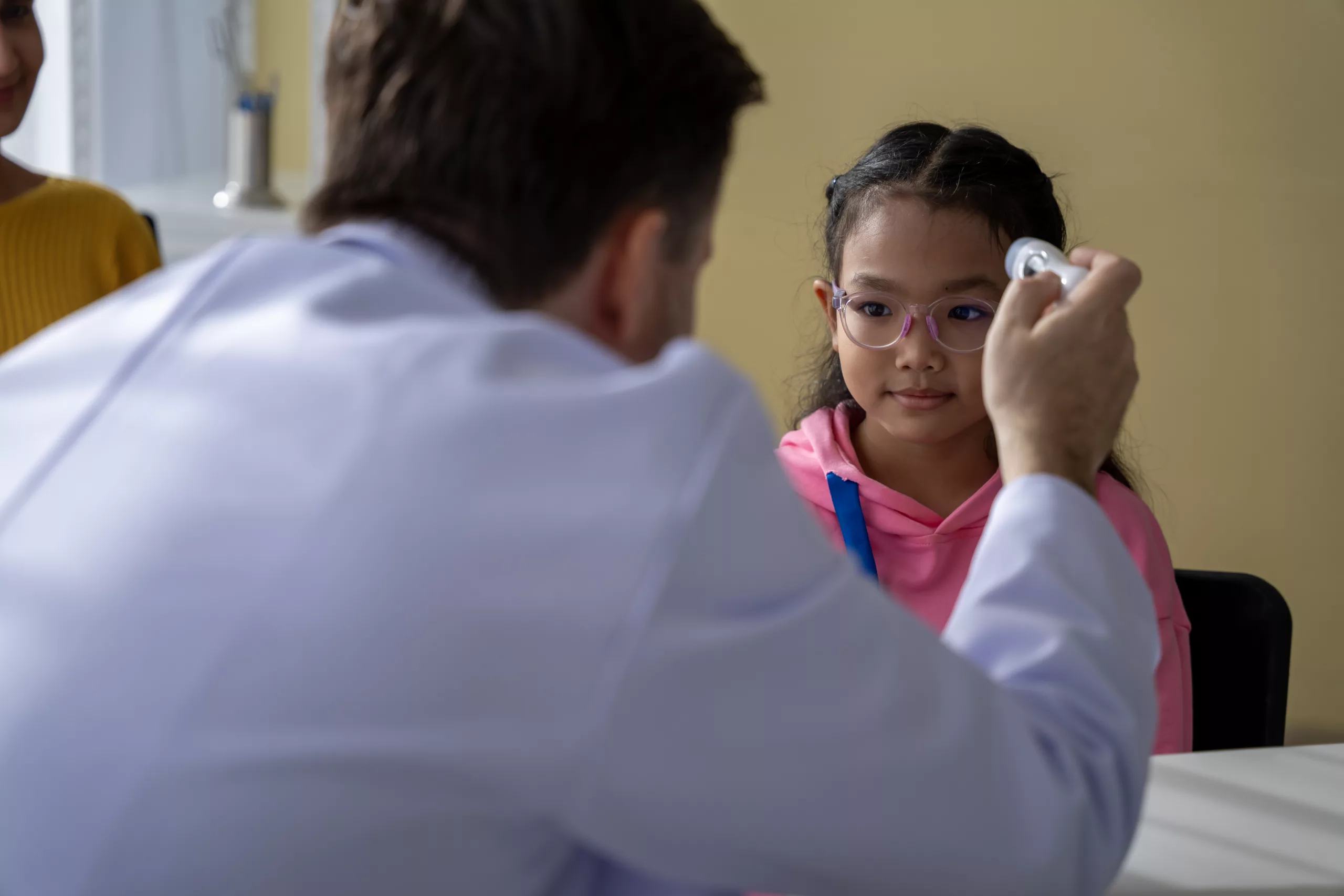Pediatric Lens Dislocation
Introduction
Pediatric lens dislocation, though rare, can significantly impact a child’s vision and overall eye health. This condition involves the abnormal displacement of the lens from its normal position within the eye. Understanding its causes, symptoms, diagnosis, and treatment options is crucial for timely intervention and management.
Causes of Pediatric Lens Dislocation
Pediatric lens dislocation can occur due to both genetic and acquired factors:
- Genetic Factors: Conditions like Marfan syndrome, Ehlers-Danlos syndrome, and homocystinuria can predispose children to lens dislocation due to weakened or abnormal connective tissues in the eye.
- Trauma: Direct trauma to the eye, such as sports injuries or accidents, can cause sudden lens dislocation.
- Systemic Diseases: Certain systemic conditions, such as metabolic disorders or juvenile arthritis, may lead to structural changes in the eye that increase the risk of lens dislocation.
Symptoms of Pediatric Lens Dislocation
Symptoms can vary depending on the severity and type of lens dislocation but may include:
- Decreased Vision: Blurred or distorted vision, especially in one eye.
- Pupil Abnormalities: Unequal pupil size or shape due to lens displacement.
- Eye Pain or Discomfort: Especially noticeable after trauma or sudden movements.
- Sensitivity to Light: Increased sensitivity due to changes in the eye’s anatomy.
Diagnosis of Pediatric Lens Dislocation
Diagnosing lens dislocation in children typically involves:
- Comprehensive Eye Examination: This includes visual acuity testing, examination of the lens with a slit lamp, and evaluation of pupil reactions.
- Medical History Review: Understanding any genetic predispositions or past traumas that could contribute to the condition.
- Imaging Studies: Sometimes, imaging tests like ultrasound or MRI may be necessary to visualize the position of the lens and assess any associated structural changes in the eye.
Treatment Options for Pediatric Lens Dislocation
The management of pediatric lens dislocation aims to preserve vision and prevent further complications. Treatment options may include:
- Conservative Management: For mild cases or where the lens is partially displaced but not causing significant visual impairment, regular monitoring may be recommended.
- Corrective Lenses: Prescription glasses or contact lenses can help compensate for vision problems caused by lens displacement.
- Surgical Intervention: In cases where the lens dislocation is severe or causing vision loss, surgical procedures may be necessary. These surgeries aim to reposition the lens or, if needed, remove it and replace it with an artificial lens (intraocular lens implantation).
- Management of Underlying Conditions: Addressing any underlying systemic or genetic conditions contributing to lens dislocation is crucial for long-term management and prevention of recurrence.
Prognosis and Long-Term Outlook
The prognosis for pediatric lens dislocation varies depending on the underlying cause, severity of dislocation, and timeliness of intervention. Early diagnosis and appropriate treatment significantly improve outcomes and help prevent complications such as secondary glaucoma or retinal detachment.
Regular follow-up visits with an ophthalmologist are essential to monitor the child’s eye health and ensure optimal visual development. With prompt intervention and comprehensive care, many children can achieve good visual outcomes and lead normal lives despite having had lens dislocation.
Conclusion
In conclusion, pediatric lens dislocation is a complex condition that requires careful evaluation and tailored treatment approaches. By understanding its causes, recognizing its symptoms, and seeking timely medical attention, parents and healthcare providers can collaborate effectively to safeguard a child’s vision and overall eye health.
World Eye Care Foundation’s eyecare.live brings you the latest information from various industry sources and experts in eye health and vision care. Please consult with your eye care provider for more general information and specific eye conditions. We do not provide any medical advice, suggestions or recommendations in any health conditions.
Commonly Asked Questions
Risk factors include genetic disorders like Marfan syndrome, trauma to the eye, and certain systemic diseases.
Yes, if not treated promptly, severe cases of lens dislocation can lead to permanent vision impairment.
Yes, eye exams can detect abnormalities in the position of the lens and other associated eye conditions.
Pediatric lens dislocation often results from genetic conditions or trauma, whereas adult lens dislocation is commonly associated with aging or eye injury.
Preventive measures include regular eye exams, wearing protective eyewear during sports activities, and managing underlying systemic conditions.
Signs include sudden changes in vision, unequal pupil size, and eye discomfort after an injury.
Surgery may be necessary for severe cases or when conservative treatments do not improve vision adequately.
Recovery times vary but typically involve post-operative care and follow-up visits to monitor healing and vision improvement.
Complications may include secondary glaucoma, retinal detachment, and permanent vision loss.
Yes, genetic factors can predispose children to conditions that increase the risk of lens dislocation.
news via inbox
Subscribe here to get latest updates !







